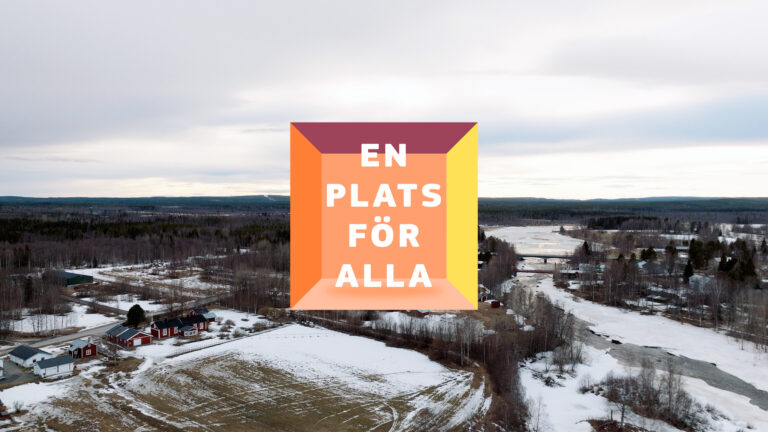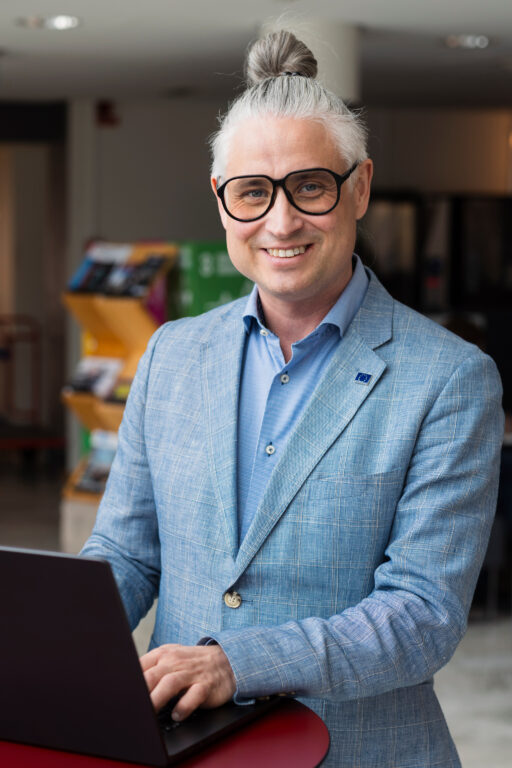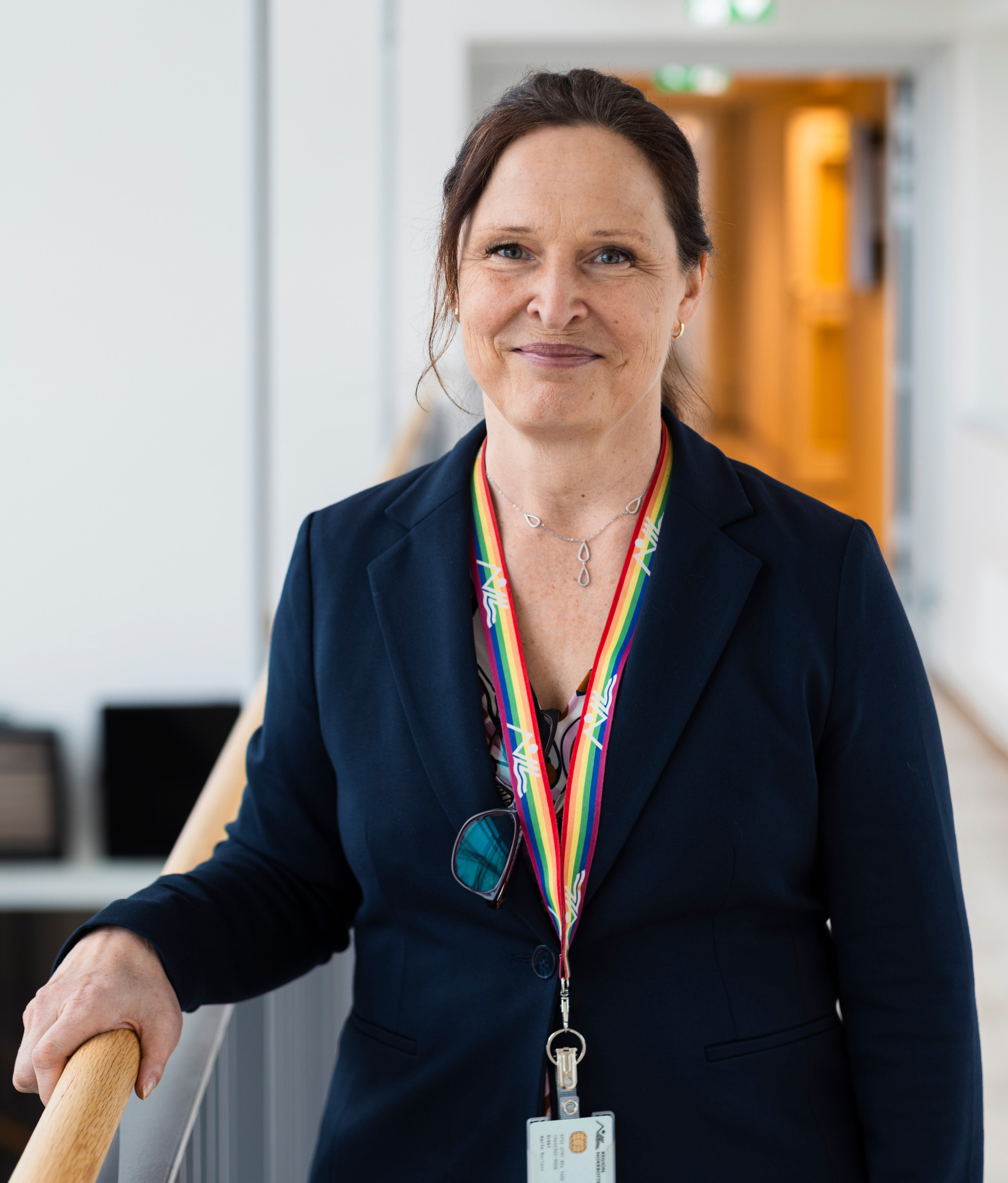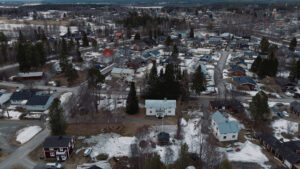New statistics show the way forward for skills provision in northern Sweden
18 June 2025
Publicerad 08:30
Northern Sweden is facing a massive recruitment challenge that will require tens of thousands of new jobs to be filled in the coming years. A new data-driven analysis and collaboration tool, developed with support from the European Social Fund, is now key to addressing this challenge.
Watch the video about coordinated skills provision in rural areas
47,700 new jobs and 39,000 education and training opportunities. That is what is needed by 2026 to meet the skills provision needs of both the public sector and the business community in northern Sweden. These are the figures calculated by a new statistical tool developed as part of the project “Koordinerad Kompetensförstärkning i Glesbygd” (Coordinated Skills Provision in Rural Areas, KKIG).

“Now, for the first time, we can see the full picture of the skills needs in our region. This allows us to prioritise the right initiatives and work strategically,” says Martin Bergvall, head of the municipal collaboration association Akademi Norr.
Thanks to financial support from the European Social Fund, which is administered by the Swedish ESF Council, Martin Bergvall at Akademi Norr, in partnership with the Lapland Municipal Association, has been able to work wholeheartedly on developing a tool and a work process for mapping skills needs. By collecting data from 27 municipalities, 30 business offices and Region Norrbotten and Region Västerbotten, a clear picture has now emerged of what is needed to meet the challenges.
“There is a lot of talk about the three major green industries in northern Sweden, but what we saw in our survey was that 14,000 jobs need to be filled in the public sector by 2026 – and that’s just here in northern Sweden,” says Martin Bergvall.


Kompetensarena Norrbotten (Skills Arena Norrbotten), another project supported by the European Social Fund and run by Region Norrbotten, will now use the tool in its work to ensure the region’s labour force is sufficiently skilled. Project manager Karin Erkki explains that the statistics previously available – from sources such as Statistics Sweden and the Swedish Public Employment Service – were not useful because they could not be broken down sufficiently locally for the small municipalities and towns in the north.
“Now we have a tool that allows us to see exactly which occupational groups need to be prioritised, and that makes a huge difference when we plan education and training initiatives. In addition to mapping needs every two years, starting in September 2025, we will create a platform that makes the results visible to those who work with education and training coordination and population growth,” says Karin Erkki.
In Norrbotten, 265 nurses with basic training are needed by 2026. At the current rate, it would take 19 years to meet that need.
Martin Bergvall gives a concrete example of how the tool reveals serious shortcomings in skills provision:
“In Norrbotten, 265 nurses with basic training are needed by 2026. At the current rate, it would take 19 years to meet that need. This is completely unsustainable, and it is precisely this type of reasoning that we need to put forward. Thanks to support from the European Social Fund, we have now been able to create a platform for innovation and collaboration on the specific challenges facing rural areas.”
A key part of this work is cross-border collaboration. By municipalities, regions, education providers and employers joining forces, new opportunities for data-driven solutions are created. And the data collected can be useful in several ways, according to Karin Erkki.
“It can be used as a basis for national actors to take concrete actions, as well as a lobbying tool at the EU level, for example when applying for rural development support or other grants.”

Fact box / Koordinerad Kompetensförstärkning i Glesbygd (KKIG) project
KKIG is a collaborative project involving Akademi Norr and the Lapland Municipal Association. The municipalities involved are Arjeplog, Arvidsjaur, Dorotea, Gällivare, Jokkmokk, Kiruna, Kramfors, Pajala, Lycksele, Norsjö, Sollefteå, Sorsele, Storuman, Strömsund, Vilhelmina, Åsele and Skellefteå. The project works closely with Luleå University of Technology, Umeå University, Mid Sweden University, the units of the non-profit organisation Företagarna in Norrbotten, Västerbotten, Västernorrland and Jämtland, Region Västerbotten’s Unit for Education and Knowledge Development, Norrbotten municipalities, Vinnova, various vocational education actors such as Lernia, FEI, Medlearn, and others.
The project aims to strengthen the operational capacity to coordinate efforts relating to higher education among the actors in the geographical area. The overall objective is to give men and women living in our rural areas better opportunities to participate in higher education, give our municipalities and companies better opportunities to recruit educated personnel and thereby reduce the consequences on the labour market caused by sparsely populated geography.
KKIG was launched in January 2023 and concluded in December 2024.
-
22 February 2022 Programme Area D
Initiatives are aimed at the sparsely populated regions of Upper and Central Norrland and are intended to contribute to strengthening local and regional structures and to development and collaboration between different organisations. -
See open calls for proposals in programme area D
Here you will find all open calls for proposals in programme area D in Upper and Central Norrland. Join us in strengthening capacity in sparsely populated areas in northern Sweden!

